Hotel Basics – Departments In A Hotel
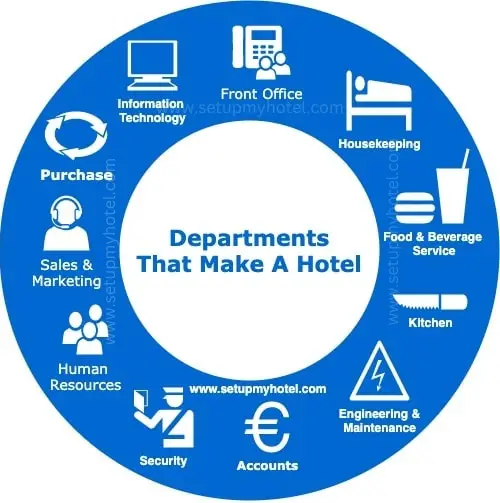
The Main Departments In a Hotel Or Resort As an outsider when you look at a hotel, the operation appears ...
Read more
Security – Types Of Safety And Security Functions I Hotels
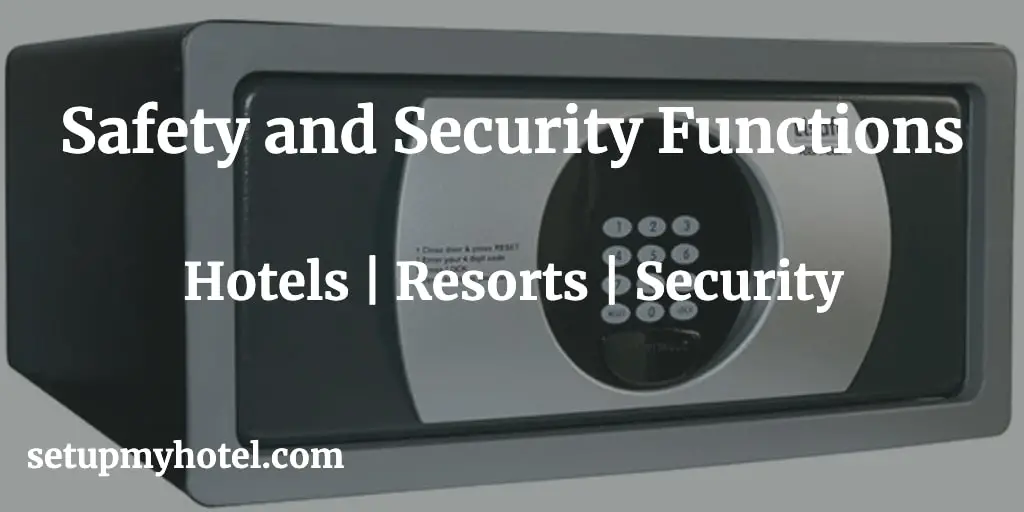
Types of Safety and Security Functions in Hotels Safety and security functions are an integral part of any hotel operation. ...
Read more
HR – Bullying And Sexual Harassment Policy Sample Hotel Staff
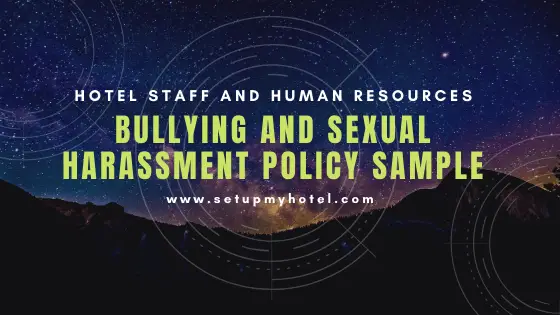
BULLYING & HARASSMENT POLICY SAMPLE FOR HOTEL EMPLOYEES Bullying and harassment of employees, whether by colleagues or management, is a ...
Read more
Security – How To Prevent Theft By Hotel Staff And Hotel Guests?
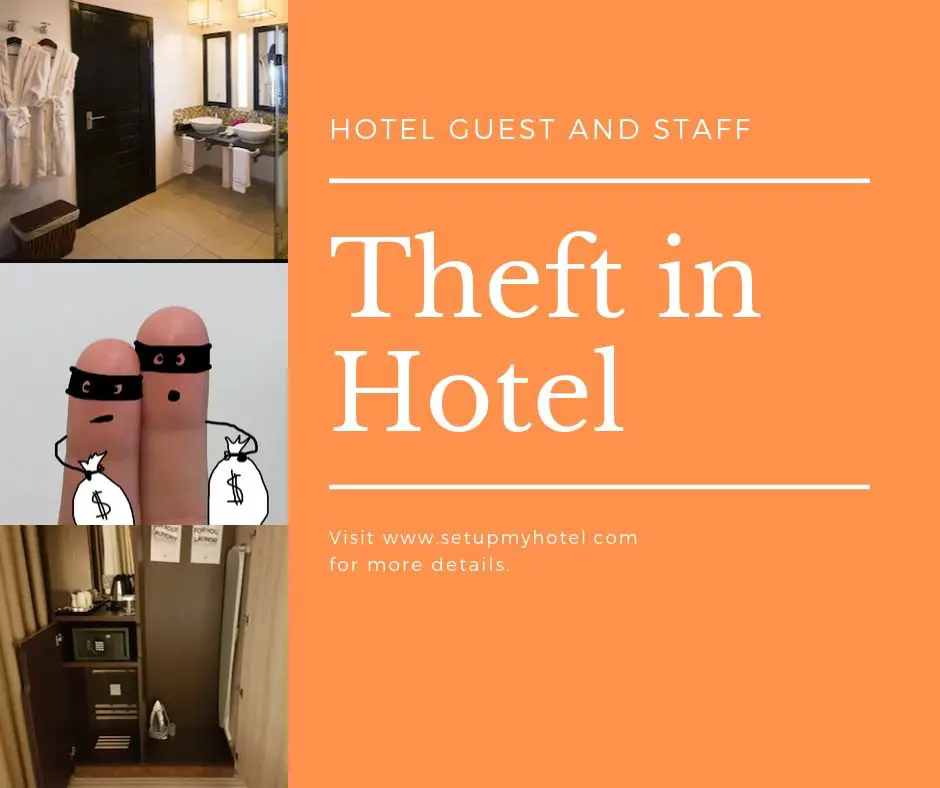
How to Prevent Theft By Hotel Staff and Hotel Guests? Hotels are a place where we expect to feel safe ...
Read more
Security – Establishing An Effective Guestroom Lock Policy
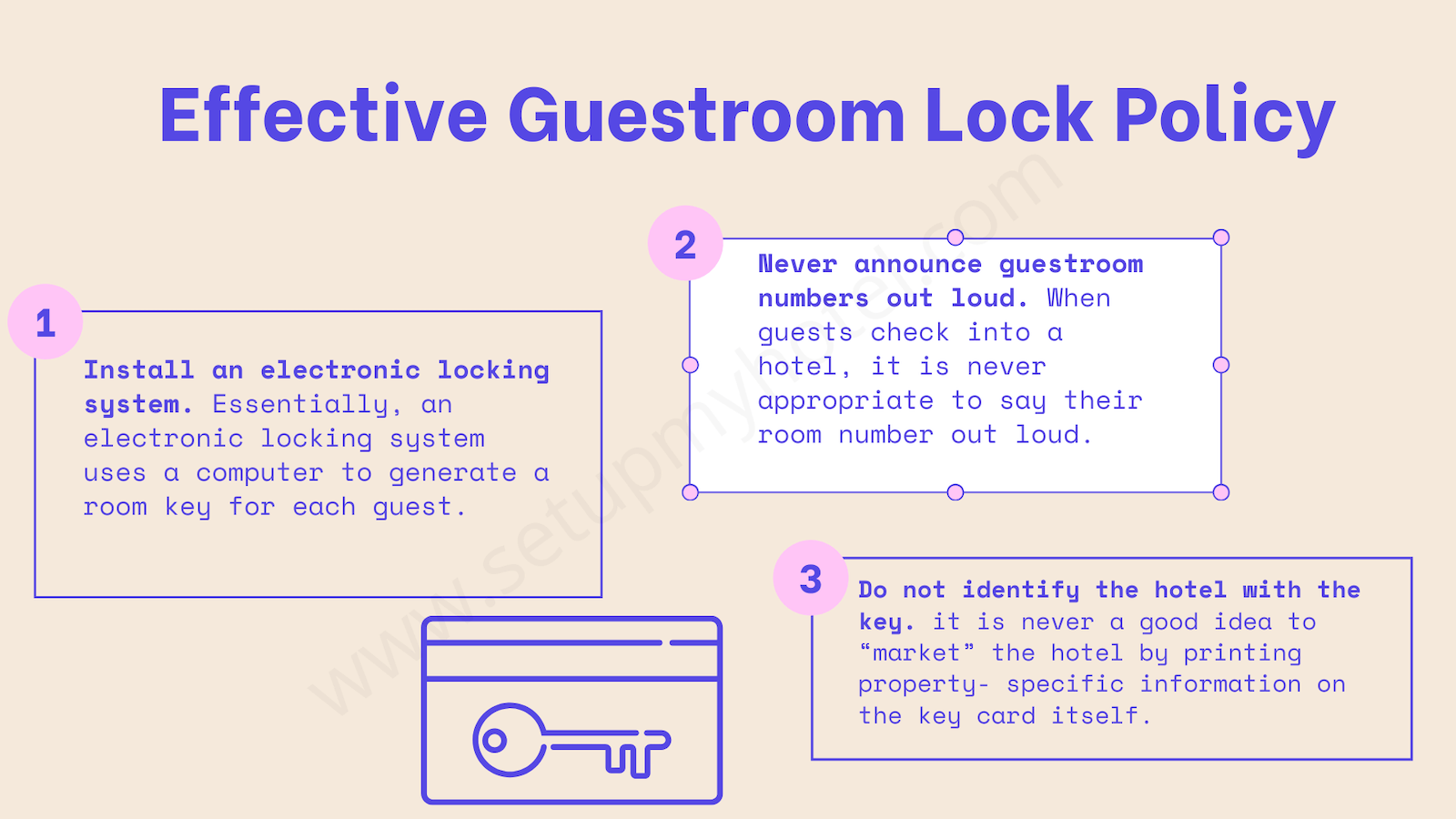
Establishing an Effective Guestroom Lock Policy The following steps outline an effective policy to protect the security of hotel guests ...
Read more
Security – Types Of Emergency Situations Encountered In Hotels
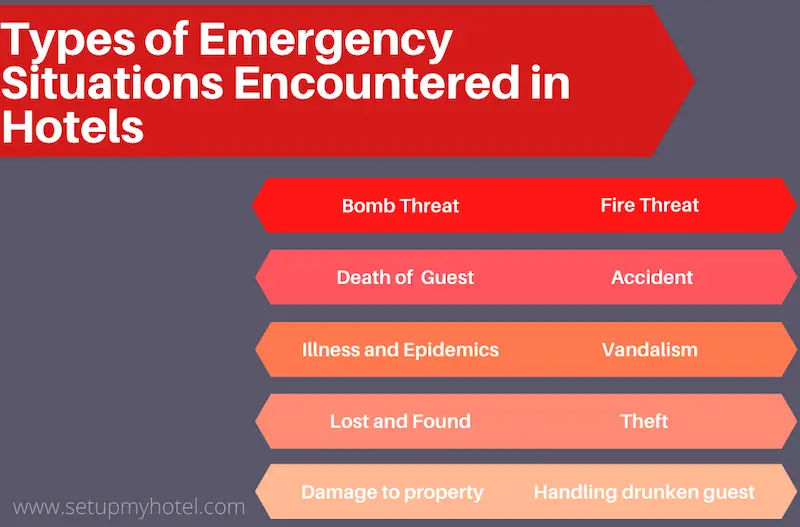
10 Types of Emergency Situations Encountered in Hotels There are different types of emergencies encountered in hotels during the day-to-day ...
Read more
Security – Handling Suspicious Items And Packages In Hotels
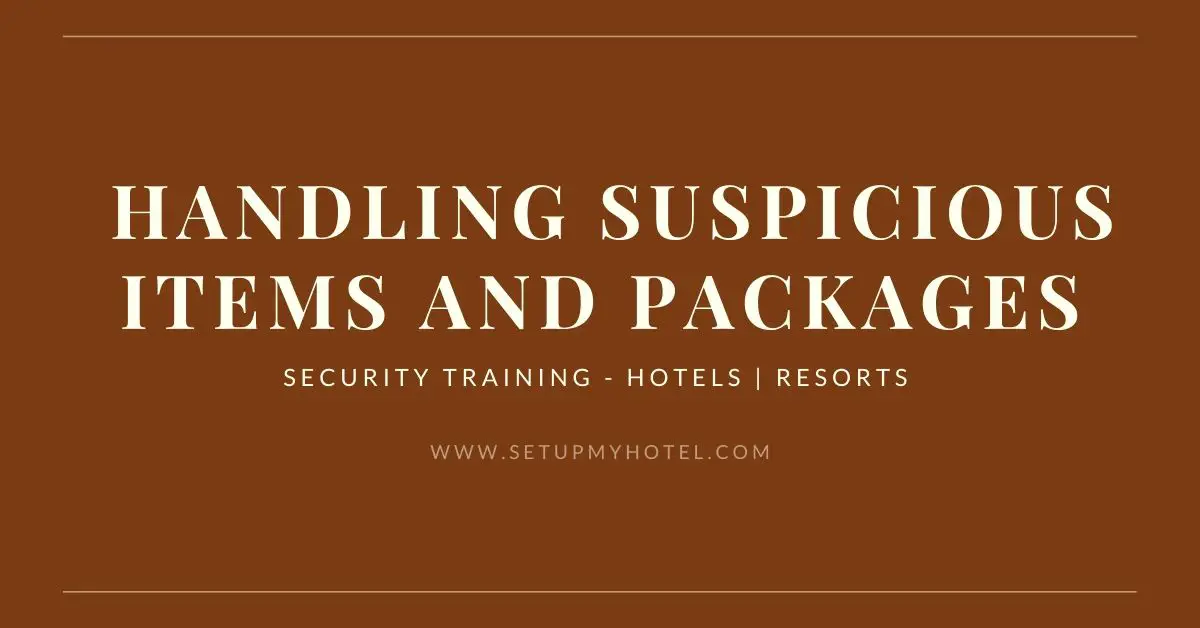
Handling Suspicious Items and Packages in Hotels Each Hotel should create guidelines and instructions on employee recognition of, response to, ...
Read more
Security – Hotel Fire Emergency Plan Sample
![The safety and well-being of our guests and staff are our top priorities. This Hotel Fire Emergency Plan outlines procedures and protocols to be followed in the event of a fire or fire-related emergency. All staff members are expected to be familiar with this plan and undergo regular training to ensure a swift and effective response. 1. Emergency Contact Information: Fire Department: [Local Emergency Number] Hotel Emergency Number: [Hotel-specific emergency number] Hotel Security: [Security contact details] General Manager: [Manager's contact details] Hotel Address: [Full address] 2. Fire Detection and Alarm Systems: Smoke Detectors: Installed in all guest rooms, public areas, and back-of-house areas. Fire Alarms: Audible alarms will sound throughout the hotel in case of fire detection. Manual Pull Stations: Located near exits and stairwells for immediate activation. 3. Emergency Evacuation Procedures: Evacuation Routes: Clearly marked evacuation routes are posted on guest room doors and in public areas. Assembly Point: Designated assembly point is [Specify location]. Floor Wardens: Assign and train floor wardens for each floor to assist in the evacuation. 4. Fire Suppression Systems: Sprinkler Systems: Installed throughout the hotel to suppress and control fires. Fire Extinguishers: Strategically placed and regularly inspected. Staff trained in proper usage. 5. Guest Communication: In-Room Information: Fire safety information is available in guest rooms. Public Announcements: In case of an emergency, use the PA system to provide clear instructions to guests. 6. Staff Training: Regular Training Sessions: Conduct regular fire safety training for all staff members. Drills: Periodic fire drills to ensure staff familiarity with evacuation procedures. 7. Guest Education: Welcome Packet: Include fire safety information in the welcome packet for guests. Digital Platforms: Utilize the hotel website and mobile apps to provide fire safety details. 8. Emergency Equipment: Emergency Lighting: Ensure all exit routes are well-lit during power outages. Emergency Evacuation Chairs: Available for guests with mobility challenges. First Aid Kits: Located at designated areas throughout the hotel. 9. Coordination with Local Authorities: Regular Meetings: Coordinate with local fire departments for joint training exercises. Emergency Services Access: Provide easy access for emergency services to the hotel premises. 10. Continuous Improvement: Review and Update: Regularly review and update the emergency plan based on feedback, lessons learned, and changes in regulations. Conclusion: The Hotel Fire Emergency Plan is a living document that requires active participation and commitment from all staff members. By following these guidelines, we can ensure the safety and well-being of our guests and staff in the event of a fire or fire-related emergency. Stay vigilant, be prepared, and prioritize safety at all times.](https://setupmyhotel.com/wp-content/uploads/2023/09/Hotel-Fire-Emergency-Plan-Sample.jpg)
Hotel Fire Emergency Plan Sample The safety and well-being of our guests and staff are our top priorities. This Hotel ...
Read more
Security – 10 Commandments Of Hotel Fire Safety
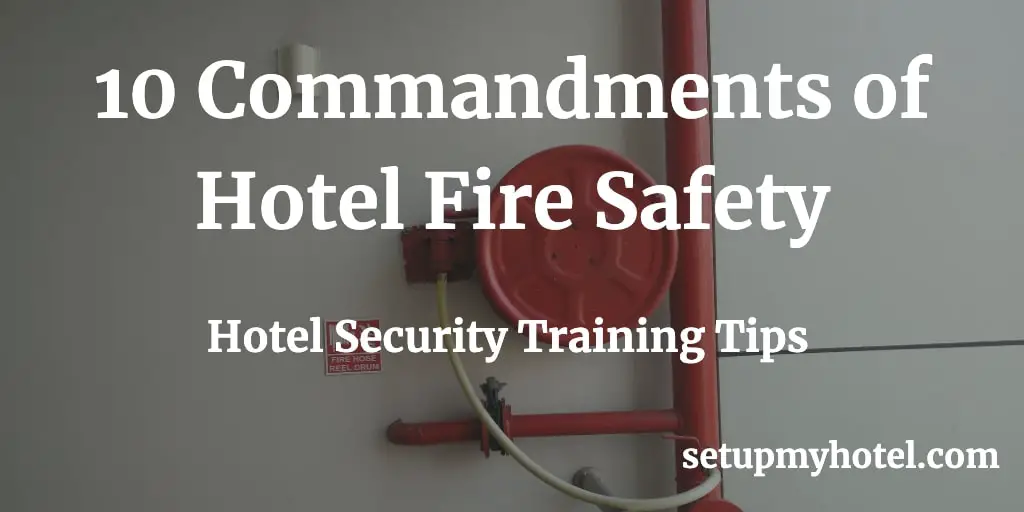
10 Commandments of Hotel Fire Safety
Read more
Management – Hotel Checklist For The Preparation Against Storms/Cyclone/Flood
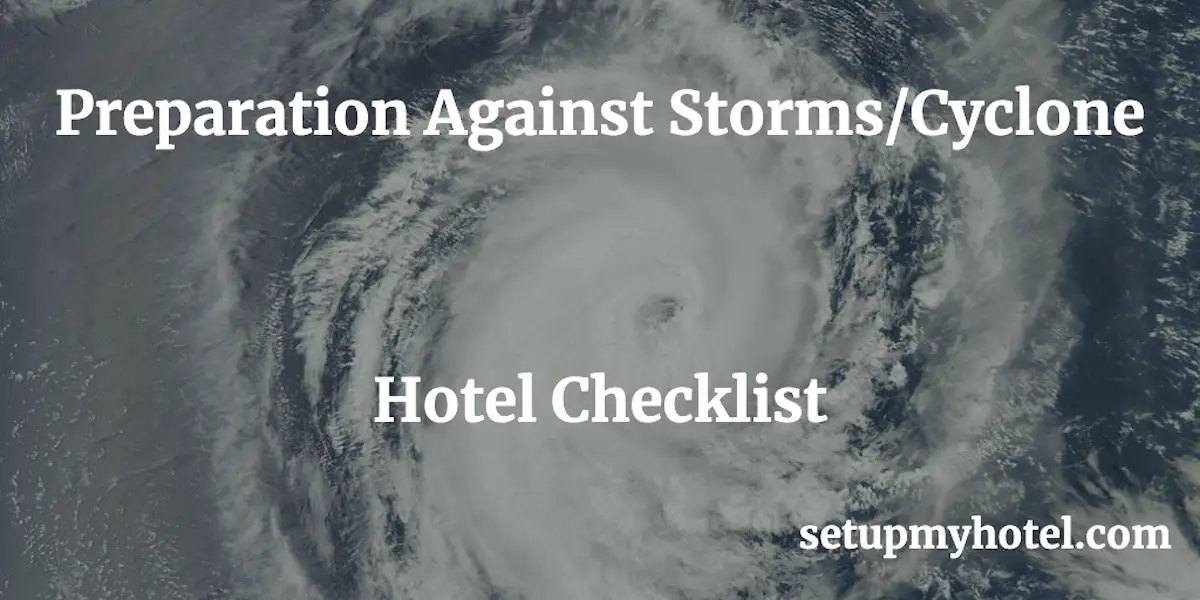
Checklist For The Preparation Against Storms/Cyclone/Flood Hotels located in areas prone to storms, cyclones, and floods need to be well-prepared ...
Read more









